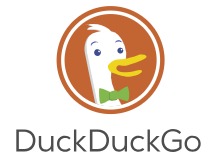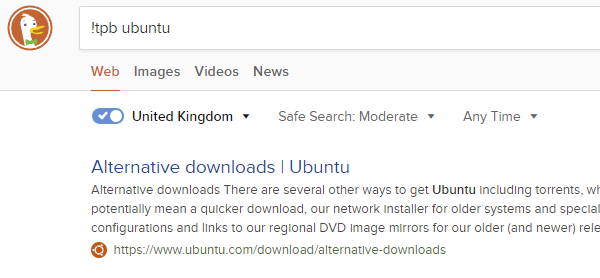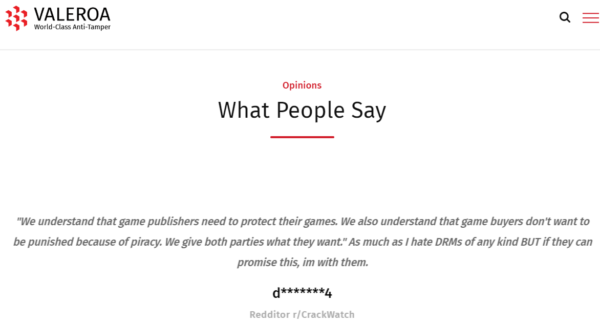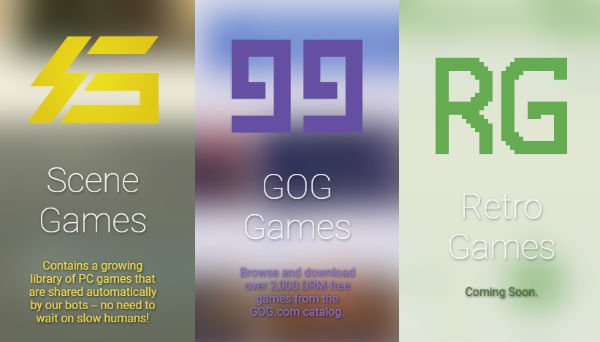DuckDuckGo Removes ‘Pirate’ Site Bangs to Avoid Liability
lundi 3 décembre 2018 à 20:24 First launched just a decade ago, search engine DuckDuckGo is a goto tool for Internet users who value their privacy.
First launched just a decade ago, search engine DuckDuckGo is a goto tool for Internet users who value their privacy.
Unlike many competitors, the site doesn’t keep a record of users’ IP addresses or other sensitive information.
The search engine also has a variety of useful features such as instant answers and bangs. The latter are particularly useful for people who want to use DuckDuckGo to search directly on other sites.
Typing ‘!yt keyword’ will do a direct search on YouTube, for example, ‘!w keyword’ goes to Wikipedia, and ‘!torrentfreak keyword’ does a search on TorrentFreak. This library of bangs has been around for a long time and has grown to more than 10,000 over the years.
However, a few days ago, roughly 2,000 of these were removed. Interestingly, this included many bangs that link to torrent sites, such as The Pirate Bay, 1337x and RARBG. Similarly, bangs for OpenSubtitles, Sci-Hub and LibGen are gone too.

Initially, it was unclear what had happened, but after people started asking questions on Reddit, DuckDuckGo staff explained that this was part of a larger cleanup operation.
DuckDuckGo went through its bangs library and removed all non-working versions, as well as verbose ones that were not actively used. In addition, many pirate site bangs were deleted as these are no longer “permitted.”
“Bangs had been neglected for some time, and there were tons of broken ones. As part of the bang clean-up, we also removed some that were pointing to primarily illegal content,” DuckDuckGo staffer Tagawa explains.
The search engine still indexes the sites in question but it feels that offering curated search shortcuts for these sites in their service might cause problems.
Apparently, this wasn’t a major issue when the bangs were first introduced. However, perhaps in part due to a changing perspective on the role of third-party intermediaries, DuckDuckGo sees potential liability issues now.
“It may not seem like so at first blush, but it is very different legally if it is a bang vs. in the search results because the bangs are added to the product by us explicitly, and can be interpreted legally as an editorial decision that is actively facilitating that site and its content.
“We operate globally, as do bangs, and products that actively facilitate interaction with illegal content can have us and our employees face significant legal liability, and jeopardizing the entire service,” Tagawa adds.
Not all users are happy with the decision. They point out that some of the removed sites can be used to access legal content as well, such as open source Linux versions. But DuckDuckGo doesn’t want to take any risk.
It is pointed out that users can still achieve the same with other tools. For example, Firefox allows users to create their own search shortcuts, which work pretty much the same as bangs.
Luckily, the TorrentFreak bang has rightfully survived DuckDuckGo’s purge. Also, anyone who’s looking for a recent Linux distribution can still use the ‘!distro’ bang.
Source: TF, for the latest info on copyright, file-sharing, torrent sites and more. We also have VPN reviews, discounts, offers and coupons.
 This week we have five newcomers in our chart.
This week we have five newcomers in our chart.

 Statistics are great. As long as you have enough data points, you can ‘win’ virtually any argument by citing only those that support your claim.
Statistics are great. As long as you have enough data points, you can ‘win’ virtually any argument by citing only those that support your claim.
